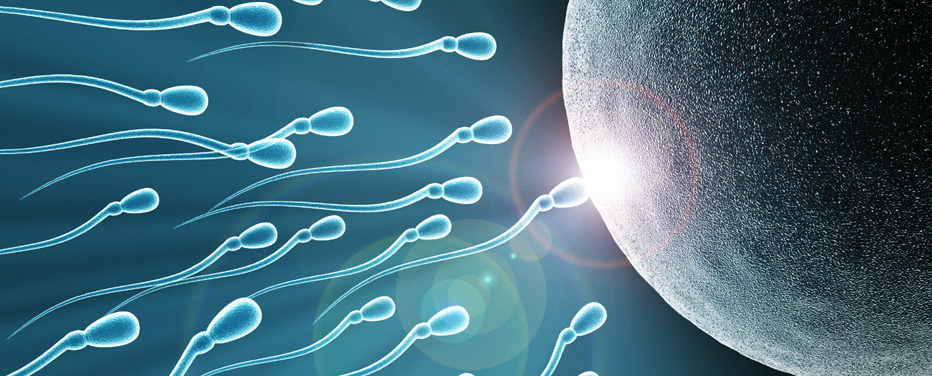
India’s first & world’s most comprehensive NGS Panels for IVF & ObGyn
Reproduction is a process of delicately choreographed physiology controlled by multiple genes at various stages: development of gonads, production of gametes, embryonic development and delivery of the new born. Any genetic mutation will hamper the process and results in reduced fertility, infertility or fetal defects.
GeneTech has systematically reviewed latest research on genetics of reproductive health to design several NGS based Reproductive Gene Panels. The panels provide valuable insights into reproductive physiology by identifying genetic variants.
 Reproductive health areas covered comprehensively
Reproductive health areas covered comprehensively
Idiopathic male and female infertility, female reproductive development problems, production and function of gametes, factors effecting embryonic development, implantation, pregnancy complications and losses.
 162+ genes analyzed
162+ genes analyzed
More than 162 genes and thousands of variants associated with reproductive developmental problems are analyzed and interpreted for risk assessment, prognostic information, success rate of ART, risk for transmission to offspring.
 Excellent diagnostic tool for IVF and ObGYN practitioners
Excellent diagnostic tool for IVF and ObGYN practitioners
When routine diagnostics, karyotyping, microarray & other DNA tests are normal, this panel offers a deeper probing & possibility of finding root cause for the problems commonly encountered by IVF and ObGYN practitioners.
 Based on robust AmpliSeq NGS technology
Based on robust AmpliSeq NGS technology
AmpliSeq chemistry is world’s best NGS sequencing panel design technology using ultra-high multiplex PCR primers. GeneTech’s panel has 100% coverage of the full genes included along with more than 1000 hotspots in addition.
 Data from 1000+ research studies around the world
Data from 1000+ research studies around the world
Panels designed by scientists at GeneTech from thousands of cases handled at our lab, and genes and genetic variants discovered and documented in more than 1000+ research studies in reproductive development around the world.
 Pharmacogenomics based therapy suggestions integrated
Pharmacogenomics based therapy suggestions integrated
Precision medicine or patient specific therapy is the future of medicine. GeneTech introduces pharmacogenomics into Reproductive and Perinatal medicine for the first time in India by including therapy specific SNPs in the panel design.
Reproductive Gene Panels
| S.No | Test name | TAT (Days) |
| 1 | GeneFRD Female Reproductive Development & Amenorrhea (Female) – 95 Genes | 15 |
| 2 | GenePCOS Polycystic Ovarian Syndrome (Female) – 10 Genes | 15 |
| 3 | GeneAndro Male Infertility (Male) – 81 Genes | 15 |
| 4 | GeneRPL Recurrent Pregnancy Loss (Male & Female) – 144 Genes | 15 |
| 5 | GeneFemina Female Infertility (Female) – 71 Genes | 15 |
| 6 | GeneRepro Comprehensive Reproductive Genetics (Male & Female) –162 Genes | 15 |
Sample Collection:
3ml Peripheral Blood in PURPLE TOP (EDTA) Vacutainer
Transport within 48 hrs at room temperature
GeneFRD (Female Reproductive Development & Amennorhea Gene Panel):
95 genes are analyzed by NGS technology to identify genetic variants associated with ovarian dysgenesis, streak or rudimentary ovaries, hypoplastic uterus, XX/XY/mixed gonadal dysgenesis, mullerian agenesis, primary amennorhea, delayed puberty, secondary amennorhea caused by hormonal imbalances, oligomennorhea, vaginal atresia, Mayer-Rokitansky-Küster-Hauser syndrome, Kallmann syndrome, Perrault syndrome, McKusick-Kaufman sydrome, Johanson-Blizzard syndrome , Asherman’s syndrome / Fritsch syndrome, short stature and webbed neck, lack of secondary sexual characters in girls, young females with normal karyotype.
GenePCOS (Polycystic Ovarian Syndrome Gene Panel):
10 genes are analyzed by NGS technology to identify genetic variants associated with polycystic ovarian condition, abnormal hormonal levels, irregular or skipped periods, insulin resistance PCOS and obesity.
GeneAndro (Male Infertility Gene Panel):
81 genes are analyzed by NGS technology to identify genetic variants associated with male idiopathic infertility, Sperm count and structure defects such as Azoospermia, Oligospermia, Teratozoospermia, Asthenospermia etc, erectile dysfunction, sperm motility and acrosome defects, obstructive varicocele and other male reproductive development defects and recurrent failure of assisted reproductive treatments and males with normal karyotype. Male infertility contributes to 30% of all infertility cases.
GeneFemina (Female Infertility Gene Panel):
81 genes are analyzed by NGS technology to identify genetic variants associated with female idiopathic infertility, ovulation disorders (Polycystic ovarian syndrome, Hypothalamic dysfunction, Premature Ovarian Insufficiency, Premature Ovarian failure, Hyperprolactinemia, fallopian tube defects, Endometriosis, uterine fibriods or polyps, obesity, recurrent failure of assisted reproductive treatments, females with normal karyotype.
GeneRPL (Recurrent Pregnancy Loss Gene Panel for Couple):
144 genes are analyzed by NGS technology to identify genetic variants associated with recurrent pregnancy losses, missed abortions, spontaneous abortions, coagulation defects, uterine structural diseases, preeclampsia related, gestational diabetes, endocrinological dysfunctions, endometrial defects, embryonic development and implantation defects, trophoblast and endometrial interactions, immunological problems and post implantation development pathways.
GeneRepro (Comprehensive Reproductive Genetics Gene Panel for Couple):
162 genes are analyzed by NGS technology including extended genes known to be associated with the process of reproduction, conception, implantation, embryonic development, pregnancy complications and delivery.
